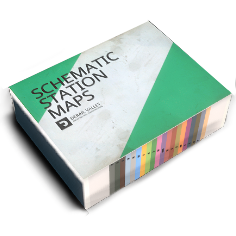Throttle: Difference between revisions
m Category ordering |
No edit summary |
||
| Line 2: | Line 2: | ||
<translate> | <translate> | ||
<!--T:1--> | <!--T:1--> | ||
Throttle is a control device, typically a lever or a wheel, used to set the desired power output of a motorized rail vehicle. | Throttle is a control device, typically a lever or a wheel, used to set the desired power output of a motorized {{pll|Rail Vehicle Types|rail vehicle}}. | ||
<!--T:2--> | <!--T:2--> | ||
On diesel-hydraulic and diesel-mechanical systems, it controls the fuel injection amount to the diesel engine. On diesel-electrics it sets the electrical circuits to a desired power level, which then indirectly controls fuel injection to the diesel engine to match. On electrics, the throttle also sets the electrical circuits to a desired power level, but it then takes power directly from an electrical source. | On {{pll|Hydraulic Transmission|diesel-hydraulic}} and {{pll|Mechanical Transmission|diesel-mechanical}} systems, it controls the fuel injection amount to the {{pll|Internal Combustion Engine|diesel engine}}. On {{pll|Traction Motors|diesel-electrics}} it sets the electrical circuits to a desired power level, which then indirectly controls fuel injection to the diesel engine to match. On {{pll|Traction Motors|electrics}}, the throttle also sets the electrical circuits to a desired power level, but it then takes power directly from an {{pll|Electric Powersource|electrical source}}. | ||
<!--T:3--> | <!--T:3--> | ||
On steam engines, the equivalent of the throttle control is called regulator. It controls the amount of steam admitted from the boiler to the cylinders. | On {{pll|Steam Overview|steam engines}}, the equivalent of the throttle control is called {{pll|Regulator|regulator}}. It controls the amount of steam admitted from the {{pll|Boiler|boiler}} to the cylinders. | ||
<!--T:4--> | <!--T:4--> | ||
Throttle needs to be applied gently, to prevent wheelslip or overheating the drivetrain of a vehicle. | Throttle needs to be applied gently, to prevent {{pll|Wheelslip|wheelslip}} or {{pll|Powertrain Overheating|overheating}} the drivetrain of a vehicle. | ||
<!--T:5--> | <!--T:5--> | ||
| Line 17: | Line 17: | ||
</translate> | </translate> | ||
{{See also|Traction Motors|Hydraulic Transmission|Mechanical Transmission|Steam | {{See also|Traction Motors|Hydraulic Transmission|Mechanical Transmission|Steam Overview|Regulator|Wheelslip|Powertrain Overheating|Reverser}} | ||
[[Category:Powertrains|4]] | [[Category:Powertrains|4]] | ||
Revision as of 14:27, 11 March 2025
Throttle is a control device, typically a lever or a wheel, used to set the desired power output of a motorized rail vehicle.
On diesel-hydraulic and diesel-mechanical systems, it controls the fuel injection amount to the diesel engine. On diesel-electrics it sets the electrical circuits to a desired power level, which then indirectly controls fuel injection to the diesel engine to match. On electrics, the throttle also sets the electrical circuits to a desired power level, but it then takes power directly from an electrical source.
On steam engines, the equivalent of the throttle control is called regulator. It controls the amount of steam admitted from the boiler to the cylinders.
Throttle needs to be applied gently, to prevent wheelslip or overheating the drivetrain of a vehicle.
Application of throttle is almost always made to be oriented towards the driver. This is so that, in case of emergency, the driver can push all the levers forward as a safety measure, without needing to think of each control’s individual rule.
See also: Traction Motors, Hydraulic Transmission, Mechanical Transmission, Steam Overview, Regulator, Wheelslip, Powertrain Overheating, Reverser
